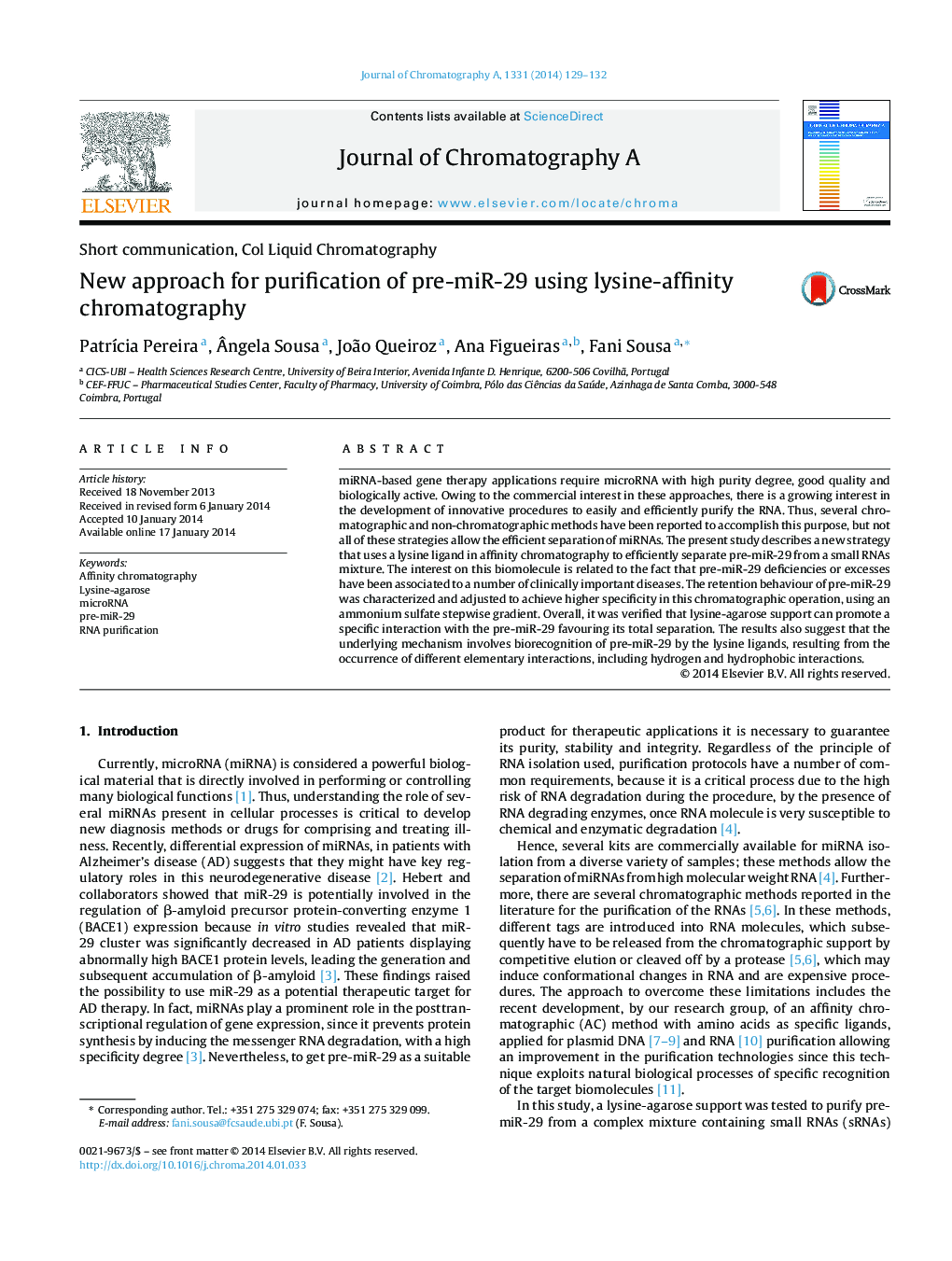| Article ID | Journal | Published Year | Pages | File Type |
|---|---|---|---|---|
| 7613695 | Journal of Chromatography A | 2014 | 4 Pages |
Abstract
miRNA-based gene therapy applications require microRNA with high purity degree, good quality and biologically active. Owing to the commercial interest in these approaches, there is a growing interest in the development of innovative procedures to easily and efficiently purify the RNA. Thus, several chromatographic and non-chromatographic methods have been reported to accomplish this purpose, but not all of these strategies allow the efficient separation of miRNAs. The present study describes a new strategy that uses a lysine ligand in affinity chromatography to efficiently separate pre-miR-29 from a small RNAs mixture. The interest on this biomolecule is related to the fact that pre-miR-29 deficiencies or excesses have been associated to a number of clinically important diseases. The retention behaviour of pre-miR-29 was characterized and adjusted to achieve higher specificity in this chromatographic operation, using an ammonium sulfate stepwise gradient. Overall, it was verified that lysine-agarose support can promote a specific interaction with the pre-miR-29 favouring its total separation. The results also suggest that the underlying mechanism involves biorecognition of pre-miR-29 by the lysine ligands, resulting from the occurrence of different elementary interactions, including hydrogen and hydrophobic interactions.
Related Topics
Physical Sciences and Engineering
Chemistry
Analytical Chemistry
Authors
PatrÃcia Pereira, Ãngela Sousa, João Queiroz, Ana Figueiras, Fani Sousa,
